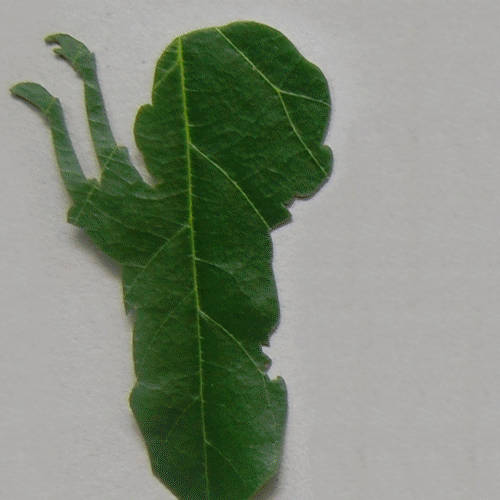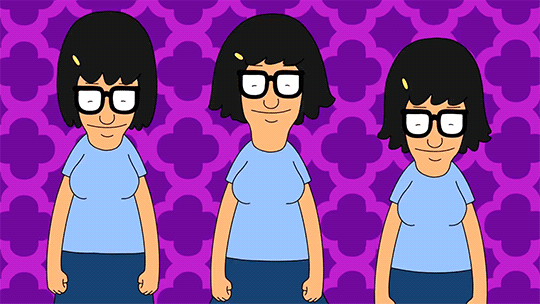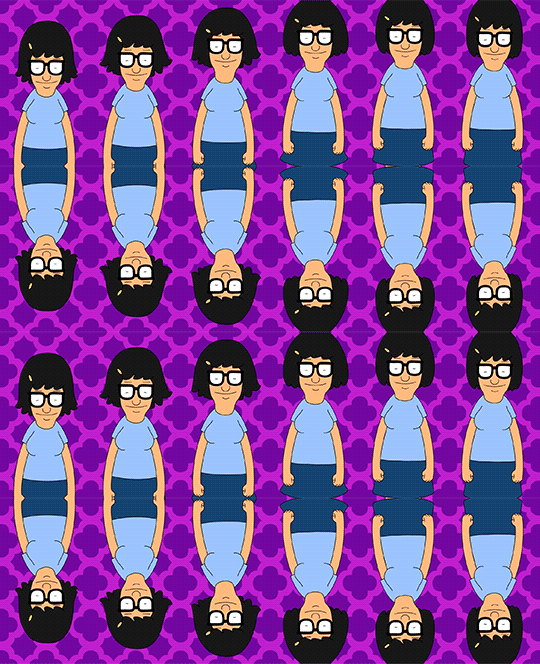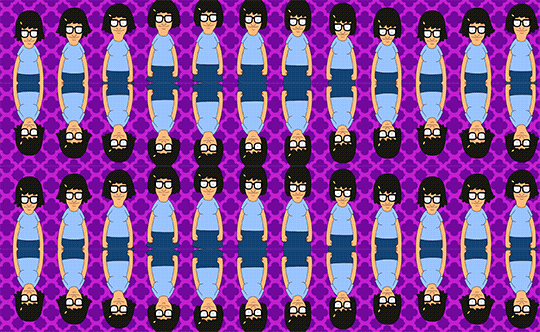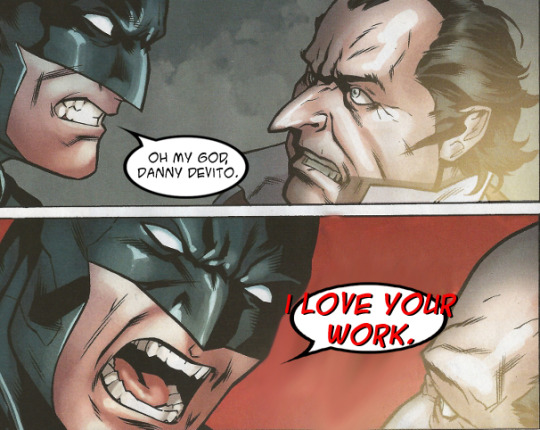Don't wanna be here? Send us removal request.
Text
Schroeder
The small town of Sebastopol, California has so many little pianos. Thousands of little pianos.
When a baby Schroeder was first brought home, the first little piano appeared in his nursery. His parents, exhausted from a particularly drawn out delivery, brushed it off as a gift and each assumed the other had received it, and it wasn't thought about again for many years.
In three year's time, the baby Schroeder grew at a grossly accelerated rate, now having the appearance and mental faculties of a ten-year-old. First he was praised as a miracle baby, a sure to be genius, and lauded as a new hope for the town of Sebastopol, for every other child born there had stopped aging. Every child born in their sleepy town would grow and age normally until about ten years, at which point they just stopped. Their physical and mental age stayed solidly at ten. For a while medical experts would be called in to study this strange town where children truly never grew up, but the hubbub eventually died down and everyone became used to the idea, despite every adult clearly showing signs of their age progressing.
However, it soon became clear that young Schroeder's growth had been arrested and had succumbed to the same fate of the rest of the children, doomed to eternal youth while their caretakers withered away. Oh well, thought his parents, at least he'll have his peers to play with. But the fates had another idea. Schroeder showed signs of an enormous mental aptitude. He was first in his class and often horribly bored, as there were no longer classes above fifth grade as there hadn’t been older children to fill them in years. As Schroeder grew in mind and maturity, he started to feel more and more isolated.
And that's when the little pianos began appearing. Just a few here and there at first, out of the way and out of sight of the adults in town, who were far too focused on the problems their town faced with children who could not grow older and a constantly aging adult population. Schroeder started finding the little pianos that appeared just around the corner whenever he grew frustrated or bored, and he could plink away at the little keys on the little piano and shut off the rest of the world and the other children, who although they looked more or less like him, were disgustingly juvenile in mind in comparison.
And the more Schroeder played on the little pianos, which he could increasingly do wherever he happened to be, the better he got, until the melodies of Twinkle Twinkle Little Star and Jingle Bells were long forgotten in favor of Beethoven's and Mozart's greatest sonatas. And as he learned to play more complicated, more beautiful pieces, the sound of the little pianos became deeper, richer, until eventually it was as if the toy had a concert grand impossibly hidden inside it. But only when Schroeder played the little pianos that now numbered in the hundreds did they give off the beautiful sounds. Whenever anyone else attempted to play the little piano it would only plink off-key like the toy it was.
There were attempts to clean up the little pianos, but after the local parks were cleared and the little pianos taken to the landfill, they appeared back in their exact previous locations. And since it made the little boy, once the hope for the future of Sebastopol, who produced such wondrous music from it happy, they were left alone. For several years little Schroeder would give impromptu concerts wherever he happened to be, and it helped the aging adults forget their worries for a bit.
Soon Schroeder found he could manipulate the little piano's sound at will, now seemingly able to summon full orchestras from his fingertips. And then wherever, whenever, he willed it he found he could make a little piano appear, always an exact replica of the same little piano that adorned his nursery all those years ago.
And then one innocuous day, Schroeder was playing his favorite Beethoven pieces to soothe his nerves after a particularly irritating visit from a local child named Lucy who would not let Schroeder alone, despite today’s latest in a series of increasingly desperate attempts to explain that his mental capacity had far surpassed hers and that a relationship would not only be ungratifying to both parties but also grossly inappropriate. So Schroeder played, as it was the only thing that gave him peace anymore. He was becoming lost in the melodies and counter melodies, effortlessly nailing the more complicated passages, and almost didn't notice at first that the little piano was looking up at him.
He stopped playing, fingers frozen above the keys. His mind tried to push out the idea as impossible, but the longer he looked, the more clearly he could see the piano's eyes looking back at him. He looked around at all the little pianos that now littered the town. They were all looking at him with eyes he would have sworn were never there before. Schroeder jumped up. The pianos all followed his gaze. Though mentally he was no longer a child Schroeder still lacked the cognitive maturity to cope with a situation as bizarre as this one was. Fear crept up his spine and raised the hairs on his neck. The only clear thought in his head was: run. As he bolted from the park where he had been playing he fought the urge to look back at the scene that had terrified him so. At the next block over his will faltered and as he took a breath he glanced over his shoulder. They were following him, marching in unison on their previously inanimate wooden legs, coming toward him from all directions. Every piano in town, every one he had willed into existence were coming for him, and Schroeder was overwhelmingly cornered. He was pressed against a storefront as the little pianos started to climb over each other to get to him. Schroeder collapsed, his back to the store’s window, arms covering his head as he cried out in terror.
The now elderly adult population who witnessed this awakening felt too weak and powerless to do anything about the freakish circumstances that faced them that day. The town was on the verge of collapse, practically and economically, and nothing they had tried to prepare for would have helped the boy being attacked by thousands of toy pianos that had suddenly gained sentience and mobility. They had no choice but to look on in horror at the display before them.
Schroeder did his best to shield himself from the little wooden legs whacking him as dozens of the toy pianos clamored over him. He did not understand what or why this was happening and great sobs erupted from him. His mind experienced a deafening dissonance, unable to comprehend and unable to accept it. Fear and grief was all he could clearly feel and know, so it took a few moments before he realized the pianos had stopped attacking him and were no longer climbing over him. In fact, they were frozen in position, even those mid air, falling off each other, were fixed in a moment of time. He pushed the pianos immediately on him and they floated carelessly off, slowing and stopping a few feet away. He stood. Everything was frozen but him. There were birds stopped mid flight, a moment of take off stymied by whatever was happening to the world. Schroeder moved through the piles of toy pianos until he stood in the middle of the street, kicking away pianos that softly floated away. He saw movement a few blocks over, a short roundish figure rummaging through the continuous sea of little pianos.
As he made his way through the frozen onslaught and nearer to the only other moving thing he could see, Schroeder suddenly felt a pang of recognition, though it didn’t make sense to him. Not that any of this did. Charlie Brown, the dull and unremarkable forever ten-year-old Schroeder shared classes with was now just down the street, too busy walking in circles, stopping suddenly, and muttering to himself. Schroeder did his best to move silently through towards him, trying to pick up what he was saying, although it sounded like gibberish.
“Charlie!” he called out and his classmate looked up in mild surprise but mostly annoyance. “Charlie, what’s happening? What are you doing? Why did everything stop?”
Charlie Brown continued his strange circular motions and mutterings for another moment before speaking up. “It shouldn’t have happened like this,” he defended without attack.
“Like what?”
“It’s sick but it should have gotten better.”
“What should? Charlie?”
Charlie Brown stopped his odd chanting and faced Schroeder, fully looking at him for the first time. He breathed in and started. “This place is sick. Time is sick. It always has been here. A convergence of realities that bubbles and boils and I was put here to help it, keep it from becoming too sick. At least that’s what I thought I was doing.”
“Who put you here? What’s sick?” Schroeder asked.
“Look around you, moron! Does this seem normal to you? Are children that stay ten forever normal? What about this seems healthy to you? You chucklefucks are lucky the great ones want to keep you from becoming twisted and lost to proper time. I was working on it, it was getting better, but you happened.”
“Me?”
“I don’t know how but you can manipulate time and space and it fucked everything up, everything I’d been working for is ruined. The only way out of this is a hard reset. Do you know what that means?”
“No.”
“New start, try it again.”
Charlie Brown recited more of that gibberish and his hands began to glow. Suddenly Schroeder felt a heat forming in his chest. And wind on his face. It was slight but definitely there. He looked around. The pianos had started moving again as if in slow motion, steadily getting slightly faster, gaining more and more of the ground they had lost on him.
“Fine, whatever, just make it stop.”
The breeze had quickly become wind whipping around the two of them, blowing away the advancing pianos. Charlie Brown looked up at Schroeder one last time. “If we get out of this alive, if you have any recollection of this at all, do me a favor: stay away from pianos.”
There was a blinding white light, then nothing. Nothing for a long time. Existence had halted and whatever consciousness had thought of itself as “Schroeder” before groggily became aware, and felt its way through the ether, until it had completed the exercise of remembering what it was. It faintly recalled that boy that had once represented it and with painfully sluggish realization how it had come to this point. And it remembered the only joy it had ever felt, playing a little piano to make beautiful music come out. It sighed or the closest thing a being of consciousness can come to sighing, and suddenly it was back in it’s body. He was Schroeder again, but younger, and infant. He recognized this intense deja vu having lived this exact moment before. He cooed with relief. Back to the beginning, he thought, without the words or concepts behind it. From his crib he could look out onto his nursery, where he was fed and rocked to sleep and always felt warm, and his eyes fell on a small toy piano that sat in the corner. He stared with recognition and desire. Without warning a great golden light erupted and a small roundish figure stepped out of it, took the little piano in his arms, and looked back at the baby Schroeder, turned back towards the light and disappeared.
Later in life, having grown at a normal, if slightly accelerated rate, Schroeder forgot about the round headed boy he had known in a former reality. Some nights he would awake with the name Charlie Brown on his lips but neither he nor anyone in the small town of Sebastopol, California could recall such a person ever living there. As he continued to grow he found he had an intense ache whenever he was around a piano, but couldn’t say what kept him from learning to play, or simply sitting down and plunking out a tune. He was haunted the rest of his life by what felt like a facsimile of his existence.
The being he had once known as Charlie Brown would never see him again, but occasionally, during his work across the timelines in this realm and the others, he would stop to think about the boy who had caused reality to fall apart, and the beautiful music he made while doing it.
5 notes
·
View notes
Photo


~*~*~*~*~*~*~*~*~*
Jean & Scott, Episode 12 by Max Wittert
(T: TallBlondNRich / IG: Max Wittert)
See previous episodes:
Episode 1
Episode 2
Episode 3
Episode 4
Episode 5
Episode 6
Episode 7
Episode 8
Episode 9
Episode 10
Episode 11
1K notes
·
View notes
Photo

Tonari no Seinfeld (My Neighbor Seinfeld)
Nina Matsumoto
6 notes
·
View notes
Video
youtube
Tonari no Sainferudo.
“My Neighbor, Seinfeld.”
2 notes
·
View notes
Video
tumblr
The entire internet needs to see this.
625K notes
·
View notes
Text
Quidditch Misdemeanors Potter, I named you after the only two activities that have ever truly brought me joy in this unending hellscape of a life
48K notes
·
View notes
Video
youtube
BustinBustinBustinBustinBustinBustinBustinBustinBustinBustinBustin
23K notes
·
View notes









